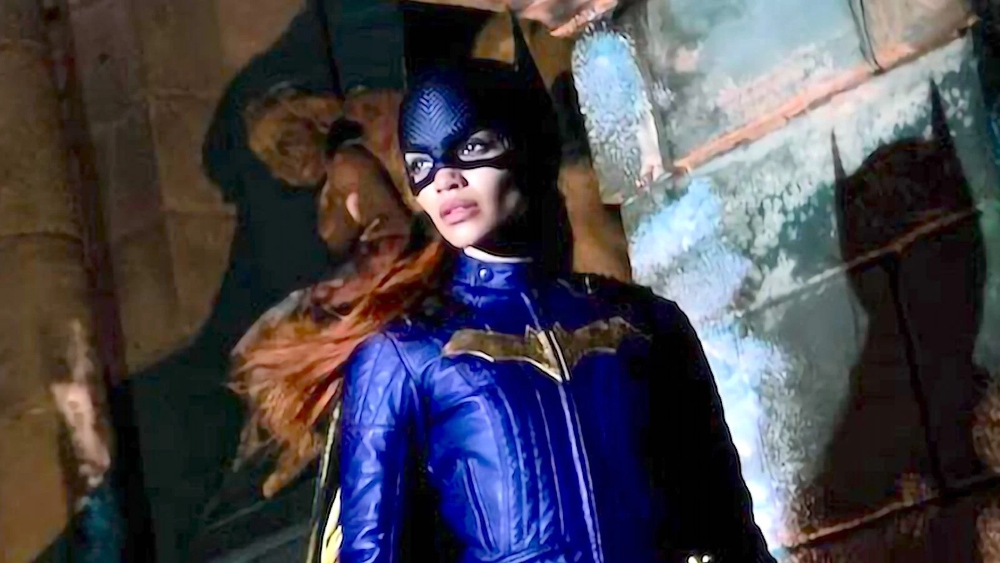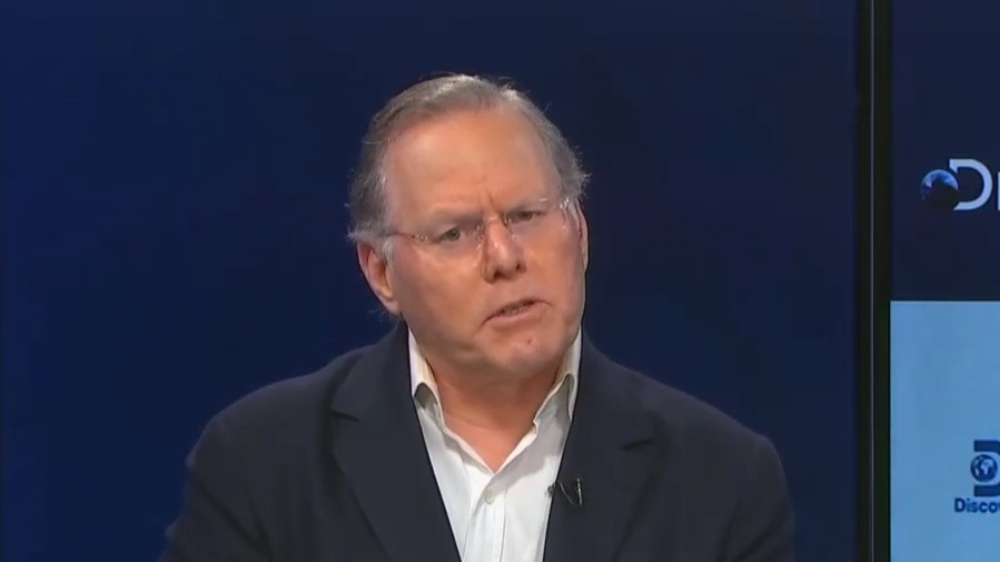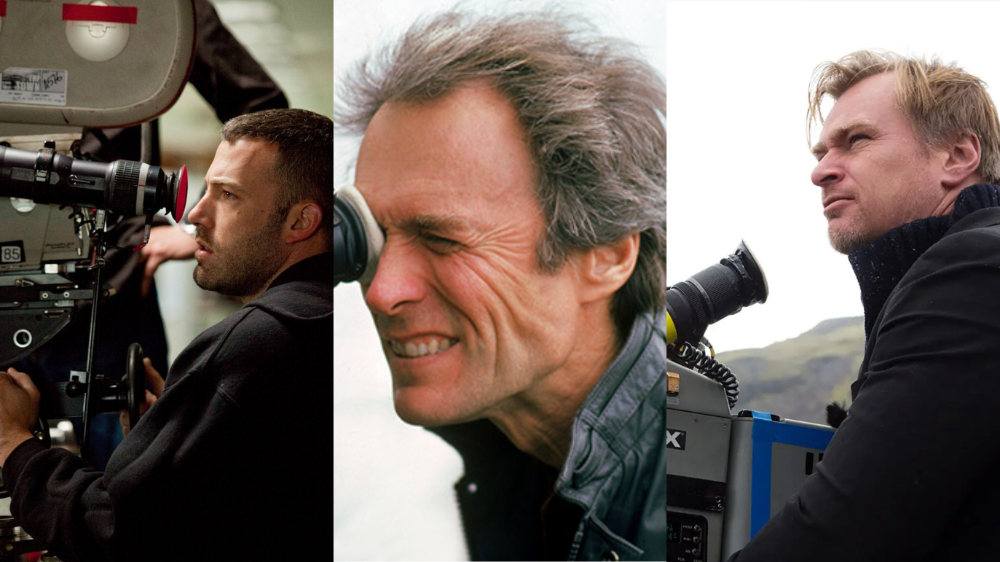
By now, it’s absolutely inconceivable that you haven’t heard about Warner Bros. canceling the Batgirl movie it spent $90 million on, though it’s entirely possible you’re still unclear why. I can definitely understand that since I’ve looked into it, spoken to people about it, examined it, and considered it… and I’m still not 100 percent certain why.
I mean, yeah, I get that there is a huge amount of debt worked into the Discovery-Warner sale and that David Zaslav is looking to mine money wherever he can, including the enormous tax break he’ll get for shelving Batgirl, but just as we talked last week about how this crusade Sylvester Stallone is waging against his Rocky producer Irwin Winkler is not a good look, neither is this one for Zaslav and Warners.
Filmmaker Kevin Smith was pretty vocal about this the other day, acknowledging that something he was working on for Warners — the DC anthology series Strange Adventures — had been axed in the HBO Max overhaul and he was bummed about it. However, that project was secondary to his chief concern — that the cancellation of a superhero movie with a Latina lead (specifically one that was part of the Batman comics universe and recast a traditionally white role with Leslie Grace, an actress of color) was a bad call no matter how you sliced it.
“It’s an incredibly bad look to cancel the Latina Batgirl movie,” Smith said on the latest episode of his YouTube show, Hollywood Babble-On, “I don’t give a shit if the movie was absolute fucking dogshit. I guarantee you that it wasn’t.”
He then pointed out that the budget was far higher than for an episode of one of the CW’s Arrowverse shows, that the directors — Bilall Fallah and Adil El Arbi — had done a solid job with Bad Boys 4 Life as well as several episodes of Ms. Marvel, and that any project with that kind of pedigree should see the light of day.

He’s right about all of this, of course. This is a pretty bad unforced error, doubly so when you consider the film’s POC lead and filmmakers. But what’s worse than the racially-charged optics is the fact that this decision is essentially Zaslav’s first foray into the public eye as the new head of Warner Bros., and it’s going to be tough to come back from this, judging the move solely from a public relations perspective. There’s an even larger issue at play here, but I’ll get to that in a moment.
First, the undercutting of HBO Max doesn’t make a lot of sense given that it has very quickly become the best streaming service out there. Not only does it have a wealth of quality material in the form of extensive libraries but there’s also the fact that, from Hacks to The Staircase, many of its shows have been pretty good. And yet, on last week’s earnings call, Zaslav said that HBO Max will merge with Discovery+ by next summer, which did more than send ripples of fear through the creative industry. It also spooked consumers, who are now left wondering what this streaming service they have come to love — the one filled with shows and movies they watch over and over again — is going to ultimately become.
Obviously, we can’t answer that yet, though the signs aren’t great for the future of scripted material on HBO Max, which has already seen movies and TV shows removed from the service. Scripted content is, obviously, more expensive to produce, and there’s still no clarity as to what kind of content Zaslav wants to showcase on the streamer. He doesn’t think a $90 million movie like Batgirl is going to bring in enough new subscribers to justify its cost so he dumps it to take advantage of a tax loophole? What kind of message does that send to the creative community? And do they even care about seeing their art reduced to a line item on a corporate budget?
Reports suggest that the test scores for Batgirl were the same as they were for WB’s monster hit It and Dwayne Johnson’s upcoming superhero movie Black Adam, so the rumor that Batgirl was so bad that it didn’t merit a theatrical release is kind of silly considering that it was always intended to be a streaming film from the get-go. I don’t think it was about the quality of the film so much as its cost and the fact that WBD had a ticking clock hanging over its head, as the studio couldn’t use Batgirl as a tax write-off after mid-August. It was now or never.

For Zaslav, movies are a math problem, as is the staff of HBO Max, many of whom will be let go in cost-cutting moves that will roll out between now and Halloween. Of course, each and every major corporation has an eye on its bottom line, and to think that they might have the consumer first and foremost in mind is more than a little naive. That said, Netflix, Hulu, Peacock, and Disney+ — to name just four — seem to have a bit more respect for their subscribers at the moment than the people now running HBO Max. A lot can happen over the next year, but to say the new WBD team has started off on the wrong foot with consumers is a bit of an understatement. At least no one has squashed Blue Beetle yet.
As suggested above, though, there is a larger issue at play here that I think has gone mostly unrecognized in all of the various takes I’ve seen regarding this situation. That is, the damage this is going to do to artist relations moving forward. Over the years, Warner Bros. earned and maintained a great reputation among filmmakers. Major directors like Clint Eastwood and Christopher Nolan came to Warner Bros. and they stayed, happy as they were with the studio’s leadership and the way they were treated. It didn’t matter if there was a change in the top spot, A-list storytellers knew they could come to the Water Tower and, generally speaking, they were going to get a fair shake.
But these days, between the bold moves from Jason Kilar and Zaslav, how can anyone expect the same treatment? It’s one thing for a new regime to put a development project into turnaround. Hell, that happens all the time and has since time began. It’s simply human nature. But when a film has already been shot and it’s in the midst of post-production, and all that time, money, and effort gets thrown into the trash? How can anyone trust that the studio is going to take care of them after something like that?
The two biggest directors making films for Warner Bros. in recent years — Nolan and Ben Affleck — have already taken off, as Nolan is filming Oppenheimer for Universal, while Affleck is shooting a Nike drama for Amazon. If you’re just a young filmmaker who’s being given a shot on a studio project, or even an established director, albeit one without The Dark Knight or a Best Picture winner (Argo) on your resume, what chance do you think your project is going to have when the guy in charge is willing to throw away an expensive superhero movie — one that featured Michael Keaton’s return as Batman, to boot?
I’m not going to say there’s no coming back from this for Zaslav, because that would be stupid, but if he wants Warner Bros. to continue to be a studio where major filmmakers want to work, he might want to rethink things, just a little. Because this is not a great start to his tenure, even if he does have a 10-year plan.
***
A post-script to last week’s Stallone column. Someone reached out to me to point out something interesting that I hadn’t considered. MGM/UA owns half of the Rocky rights, with Irwin Winkler owning the other half, but Stallone isn’t going after the production company, just Winkler.
Interesting. And worth noting. It makes you wonder why Stallone is choosing to wage only half a war, and what his endgame might be, but perhaps he’s gearing up for a larger battle after his new MGM movie, Samaritan, debuts on Amazon Prime Video later this month. If you want to talk about it, Sly, I’m here to listen…
 Neil Turitz is a journalist, essayist, author, and filmmaker who has worked in and written about Hollywood for nearly 25 years, though he has never lived there. These days, he splits his time between New York City and the Berkshires. He’s not on Twitter, but you can find him on Instagram @6wordreviews.
Neil Turitz is a journalist, essayist, author, and filmmaker who has worked in and written about Hollywood for nearly 25 years, though he has never lived there. These days, he splits his time between New York City and the Berkshires. He’s not on Twitter, but you can find him on Instagram @6wordreviews.
You can read a new installation of The Accidental Turitz every Wednesday, and all previous columns can be found here.





